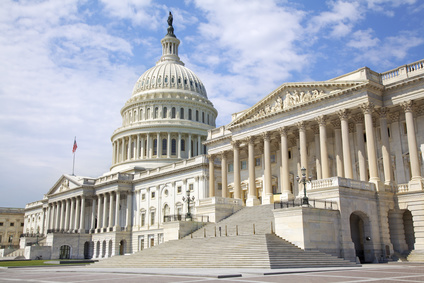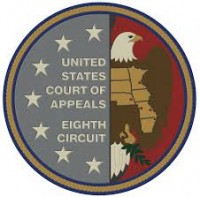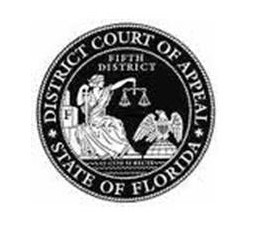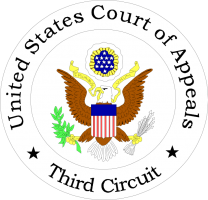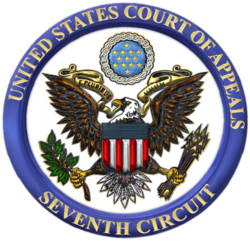The Third District Court of Appeal of the State of Florida recently reversed a summary judgment award in favor of two noteholders seeking a deficiency judgment against the note guarantors who were not joined in a prior foreclosure action as to the collateral, holding that: (a) the guarantors were not estopped from challenging the amounts of the deficiency judgments in a later action at law on their guaranties; and (b) equitable defenses that could have been raised in a mortgage foreclosure action seeking a deficiency can also be raised in a later action against the guarantors to collect the deficiency.…
Posts published by “Hector E. Lora”
Hector E. Lora manages the firm’s Florida office and has substantial experience in all phases of complex commercial litigation, including bench and jury trials as well as appellate practice. Hector represents lenders, servicers, debt collectors and debt buyers in complex mortgage foreclosure actions, quiet title actions, federal TILA, RESPA, TCPA, and FDCPA actions and Florida FCCPA actions brought by borrowers or debtors. He also represents creditors in bankruptcy litigation, purchasers of accounts receivable or factoring companies that provide revenue-based financing to small and mid-sized businesses in collection actions, and landlords in commercial and residential evictions. Hector’s broad litigation experience includes over a decade of defending civil enforcement actions filed by the Federal Trade Commission as well as real estate contract disputes and partition actions, contested mortgage foreclosure and condominium lien foreclosure actions and the foreclosure of UCC Article 9 security interests. Hector also has advised a variety of types of businesses regarding their compliance with applicable federal and state consumer protection laws, including the Federal Trade Commission Act, the Telephone Consumer Protection Act (TCPA), the Telemarketing and Consumer Fraud and Abuse Prevention Act, the Telemarketing Sales Rule, the Controlling the Assault of Nonsolicited Pornography and Marketing Act of 2003, and Florida laws governing telephone solicitation and communication. Hector received his Juris Doctor from the Georgetown University Law Center, and his undergraduate degree with honors from the University of Florida. For more information, see https://mauricewutscher.com/attorneys/hector-e-lora/
The District Court of Appeal of Florida, Second District, recently held that section 559.715 of the Florida Consumer Collection Practices Act (FCCPA) does not create a condition precedent that an assignee of a mortgage loan debt must give notice to the consumer 30 days before filing an action seeking a deficiency judgment. A copy of the opinion in Dyck O’Neal, Inc. v. Kami Ward is available at: Link to Opinion. A borrower defaulted on her mortgage loan and the property was foreclosed upon and sold at a foreclosure sale. The judgment was then assigned to a debt collector, who filed…
The U.S. Court of Appeals for the Third Circuit recently reversed the dismissal of a putative class action under the federal Fair Credit Reporting Act (FCRA) based on the theft of laptops from a health insurer containing sensitive personal information, holding that the plaintiffs had standing to sue because Congress created a statutory remedy for the unauthorized transfer of personal information, the disclosure of which constituted a cognizable injury, regardless of whether the stolen information was actually used improperly. A copy of the opinion in In re Horizon Healthcare Inc. Data Breach Litigation is available at: Link to Opinion. The…
The Supreme Court of the United States recently held that the “sue-and-be-sued” clause in the Federal National Mortgage Association’s (“Fannie Mae”) charter does not confer subject matter jurisdiction on federal district courts over all cases involving Fannie Mae, and that an independent basis for subject matter jurisdiction must exist such as federal question or diversity. A copy of the opinion in Lightfoot v. Cendant Mortgage Corp. is available at: Link to Opinion. Justice Sotomayor’s opinion began by reciting the history of Fannie Mae, which began with the federal government’s attempts to stabilize and strengthen the residential mortgage market during the…
The U.S. District Court for the Middle District of Florida recently granted in part a mortgage loan servicer’s motion to dismiss a consumer borrower’s claims under the federal Fair Debt Collection Practices Act (FDCPA), the Florida Consumer Collection Practices Act (FCCPA), the Real Estate Settlement Procedures Act (RESPA), the federal Fair Credit Reporting Act (FCRA), and the federal Declaratory Judgment Act (DJA), holding: (a) the borrower’s complaint stated claims under the FDCPA and FCCPA because the allegations raised a plausible inference that the servicer knew the borrower was represented by counsel; (b) the borrower’s allegations that the statute of limitations…
The Court of Appeal of the State of Florida, Third District, recently reversed summary judgment in favor of a mortgagee-loss payee under a homeowner’s insurance policy, holding that the mortgagee failed to provide evidence of the value of the property after repairs, and therefore failed to show that repairing the property was not economically feasible. A copy of the opinion Alvarez-Mejia v. Bellissimo Properties, LLC, et al. is available at: Link to Opinion. A consumer took out a purchase money loan for $120,000 secured by a mortgage on the residential property. The original lender assigned the mortgage to two fractional…
The United States Bankruptcy Appellate Panel for the Eighth Circuit recently held that filing a proof of claim on a time-barred debt is not, alone, a prohibited debt collection practice under the federal Fair Debt Collection Practices Act. A copy of the opinion is available at: Link to Opinion. Husband and wife debtors filed a Chapter 13 bankruptcy petition. A medical services provider filed a proof of claim shortly thereafter. After their Chapter 13 plan was confirmed, the debtors filed an adversary proceeding against the medical services provider for damages under the FDCPA, arguing that because the debt was time…
The Florida Fifth District Court of Appeal recently affirmed summary judgment in favor of a mortgagee in an action challenging a notice of default in a mortgage foreclosure action that provided only 28 days to cure instead of the 30 days required under the mortgage. A copy of the opinion is available at: Link to Opinion. The mortgagee sent a notice of default to the borrowers that provided 28 days to cure instead of the 30 days specified in the mortgage. The borrower failed to cure the default and the mortgagee sued to foreclose. Almost four years after the foreclosure action was…
The U.S. Court of Appeals for the Third Circuit recently reversed the dismissal of a borrower’s claims under the Federal Fair Debt Collection Practices Act against a foreclosure law firm, holding that not-yet-incurred fees pled in foreclosure complaint — without conveying that the fees were estimates or imprecise amounts — could constitute an actionable misrepresentation. The Court also rejected the foreclosure firm’s arguments that a foreclosure complaint could not serve as the basis of an FDCPA claim. However, the Court upheld the dismissal of the borrower’s state law claims, due to lack of ascertainable damages. A copy of the opinion is…
The U.S. Court of Appeals for the Seventh Circuit recently held that a secured creditor must file its proof of claim no later than the 90-day deadline under Federal Rule of Bankruptcy Procedure 3002(c) in order to receive distributions under a Chapter 13 plan of reorganization. A copy of the opinion is available here: Link to Opinion. An individual debtor filed his petition under Chapter 13 of the Bankruptcy Code. The clerk of the Bankruptcy Court mailed the “Notice of Chapter 13 Bankruptcy Case, Meeting of Creditors, & Deadlines” to the debtor’s creditors. Pursuant to Federal Rule of Bankruptcy Procedure 3002(c),…
The U.S. District Court for the Northern District of California recently denied a motion to compel arbitration filed by two allegedly affiliated banks that issued department store credit cards, and the one of the issuing banks and another entity that serviced the cards, in a case alleging they violated the federal Telephone Consumer Protection Act by calling the debtor’s cellular phone in an attempt to collect on the credit card debt. A copy of the opinion is available here. The plaintiff stopped paying his credit card in July 2013 and sent a letter to the issuing bank advising that he could no longer make payments and…
The Court of Appeal of the State of California, Second Appellate District, recently affirmed the trial court’s ruling in favor a bank and its employee as to a plaintiff’s malicious prosecution claim. In so ruling, the Appellate Court held that the doctrine of the law of the case does not bar application of the doctrine of collateral estoppel to plaintiff’s malicious prosecution claim, and that a magistrate’s determination in the plaintiff’s criminal proceeding on the issue of probable cause defeats the malicious prosecution claim as a matter of law. A copy of the opinion is available at: http://www.courts.ca.gov/opinions/documents/B258021.PDF. The plaintiff sued…




